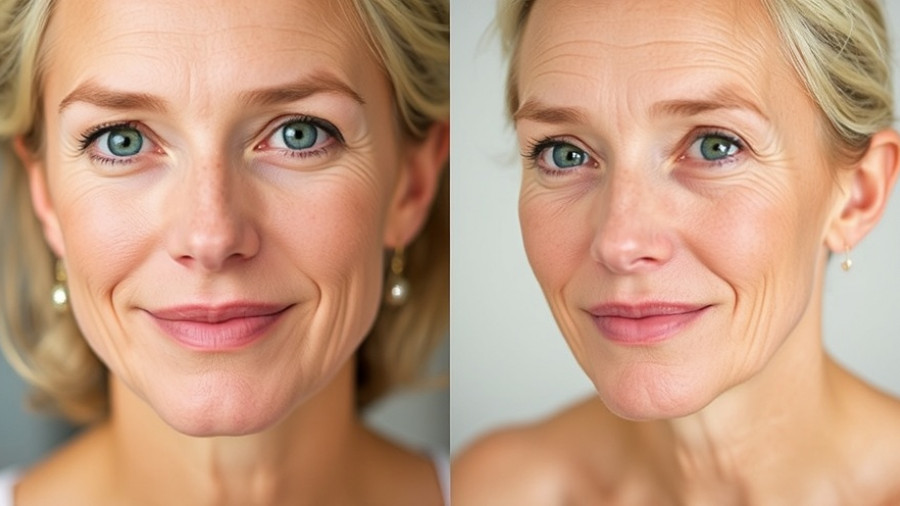
Understanding Inflammaging: What Is It?
As we navigate our daily lives, it's easy to forget how chronic inflammation, often referred to as inflammaging, is silently impacting our skin and overall health. Dr. Mary House highlights this insidious condition that affects many midlife women, often causing our skin to look older than we feel. Inflammaging is a low-level, chronic inflammation that our bodies experience—not from the acute injuries we might think of, but from stress, poor diet, and sleep deprivation. Essentially, it’s a condition that ultimately diminishes our skin's vitality, leading to a loss of elasticity and luminosity.
In 'Why Your Skin Looks Older Than You Feel (and How to Fix It)', the discussion dives into chronic inflammation and its impact on our skin, exploring key insights that sparked a deeper analysis on our end.
The Connection Between Lifestyle and Skin Aging
Chronic stress, one of the primary drivers of inflammaging, causes our bodies to sustain a heightened cortisol level, which, as Dr. House notes, weakens skin proteins like collagen and elastin. The result? Skin that appears tired and aged.
Moreover, poor sleep plays a critical role; it's during sleep that our skin repairs and restores itself. When sleep is compromised, we might notice dullness, puffiness, and premature lines. Blood sugar swings caused by our dietary choices only further exacerbate the problem, leading to glycation—the process by which sugar molecules attach to proteins and degrade collagen, resulting in a loss of skin firmness and elasticity.
Overcoming Digital Burnout
In a tech-driven world, digital overload adds another layer to our chronic inflammation. Our addiction to screens, constant notifications, and digital comparison can induce psychological stress that impacts our physical appearance. By recognizing the triggers of inflamed skin and making conscious, gradual adjustments to our routines, we can reclaim our skin's vitality.
Strategies to Combat Inflammaging
Adopting proactive measures can significantly diminish the effects of inflammaging. Here are essential strategies based on insights from Dr. House:
- Prioritize Sleep: Aim for 7-9 hours of quality sleep each night. Create a bedtime routine that excludes screens to enhance your sleep quality.
- Nourish Your Body: Focus on a balanced diet rich in whole foods, including proteins, healthy fats, and a colorful array of fruits and vegetables. This practice promotes stable blood sugar levels and overall skin health.
- Manage Stress: Incorporate mindfulness practices such as meditation, yoga, or simply quiet contemplation into your daily routine. Even short breaks from work to engage in deep breathing can alleviate stress.
- Digital Boundaries: Set limits on screen time. Consider designating 'phone-free' periods throughout your day to give your mind and body a break from digital noise.
- Stay Hydrated: Drink plenty of water throughout the day. Hydration plays a vital role in maintaining skin elasticity and a healthy glow.
Personalized Approaches to Skincare
Beyond these lifestyle changes, it's essential to tailor your skincare routine to reflect your unique needs. While including serums and sunscreens is important, combining these products with healthy living strategies can create a more significant impact. Simple changes can lead to cumulative benefits, promoting long-term skin health and vitality.
The Holistic View of Skin Health
In conclusion, as Dr. House emphasizes, our skin's appearance reflects our internal health. Addressing the root causes of inflammaging not only helps in rejuvenating our skin but also enhances our overall well-being. If you or someone you know is on this journey, remember, every small step counts toward a healthier you.
If you found this analysis beneficial, consider implementing these strategies in your daily life. Your skin reflects the beauty of your internal health, and by reducing chronic inflammation, you can rejuvenate both your appearance and well-being!
 Add Row
Add Row  Add
Add 




Write A Comment